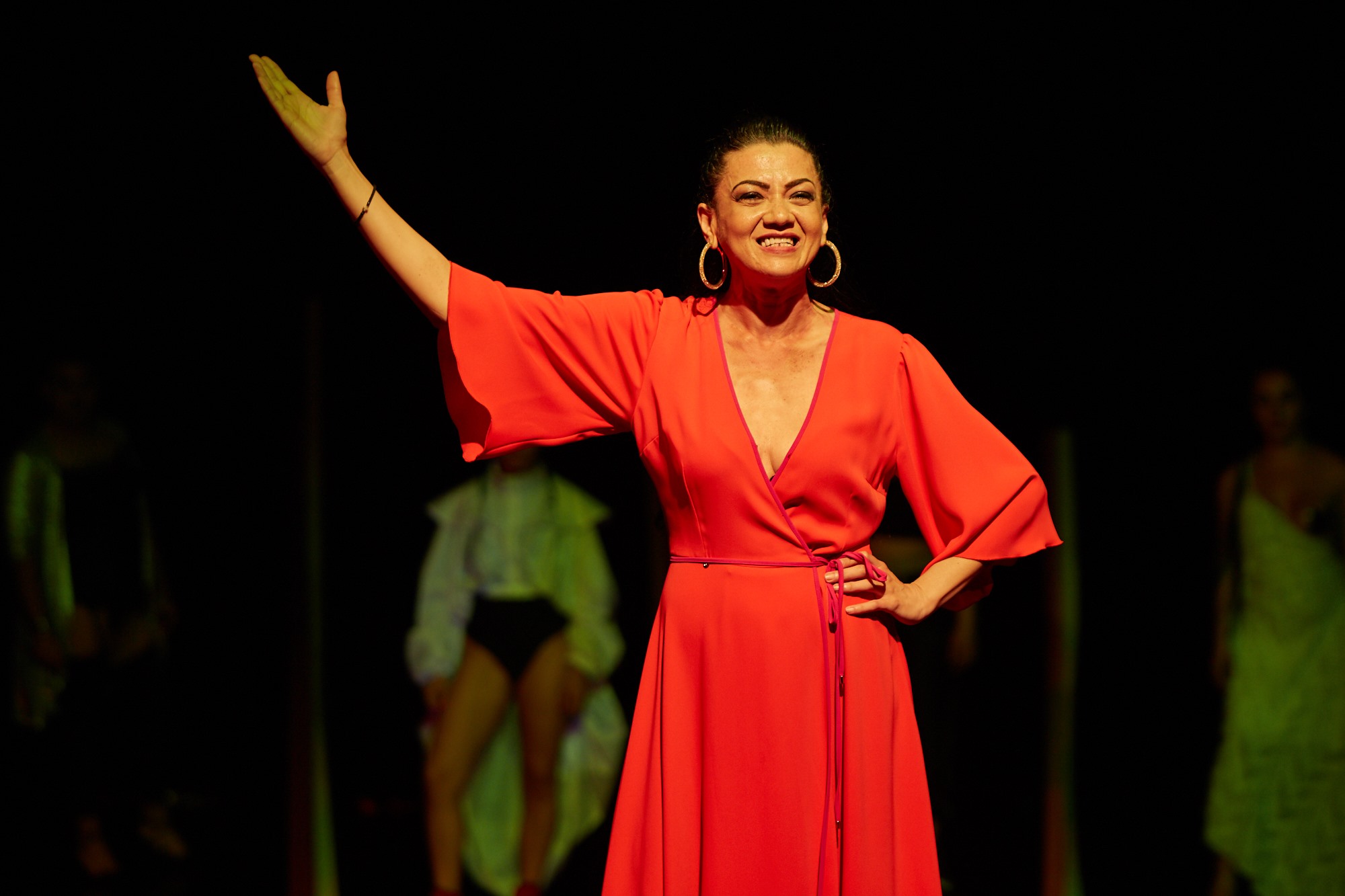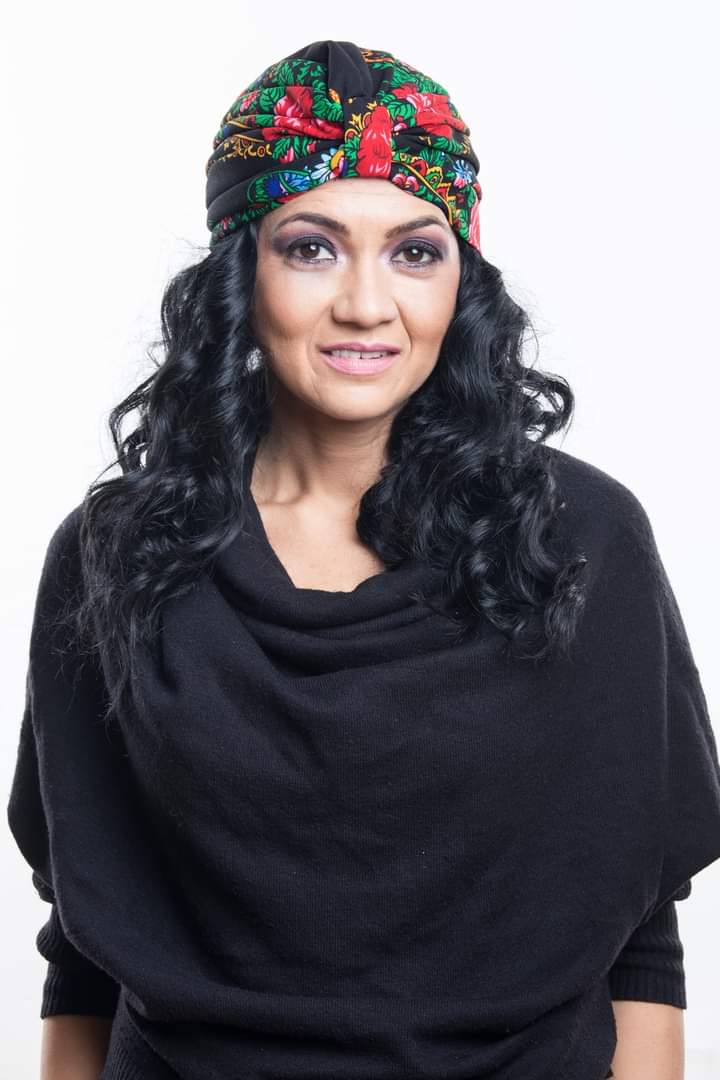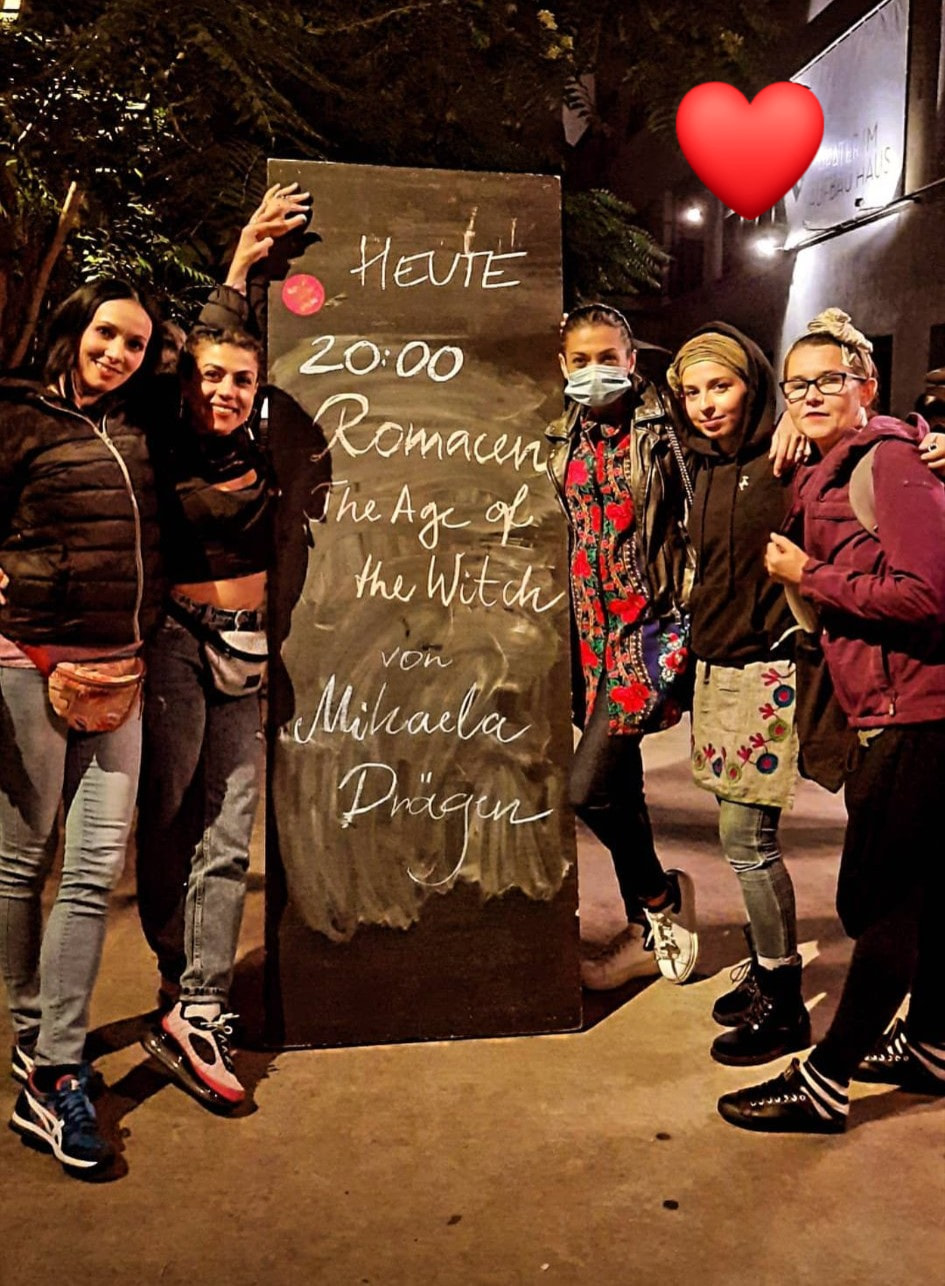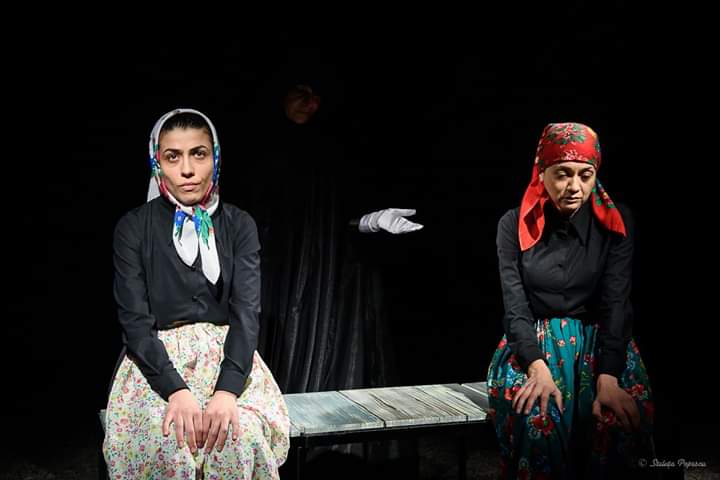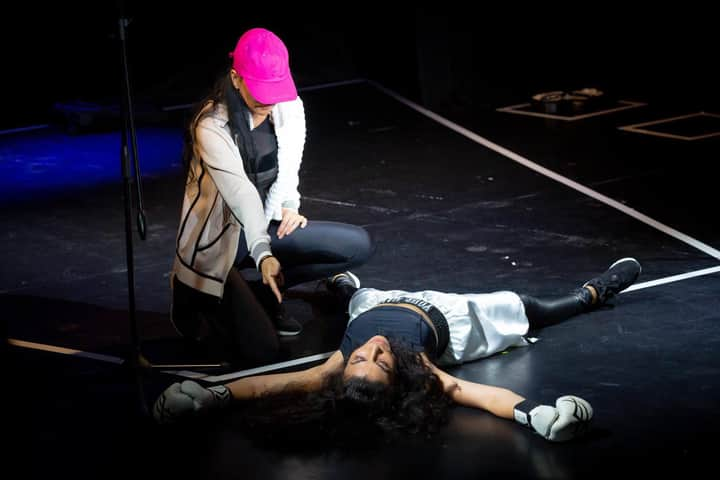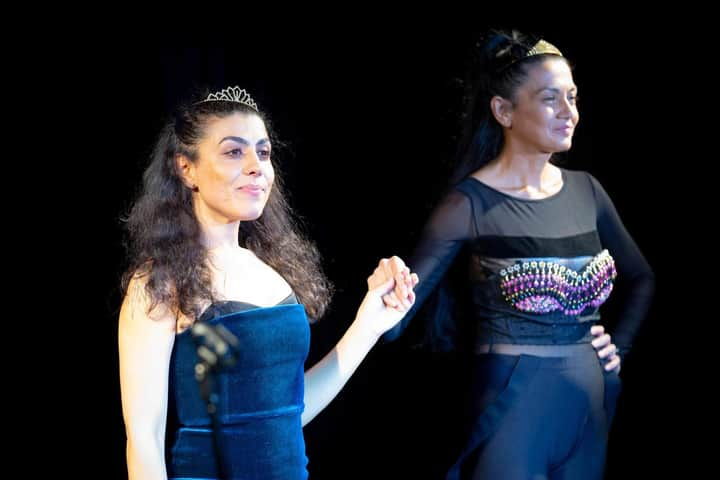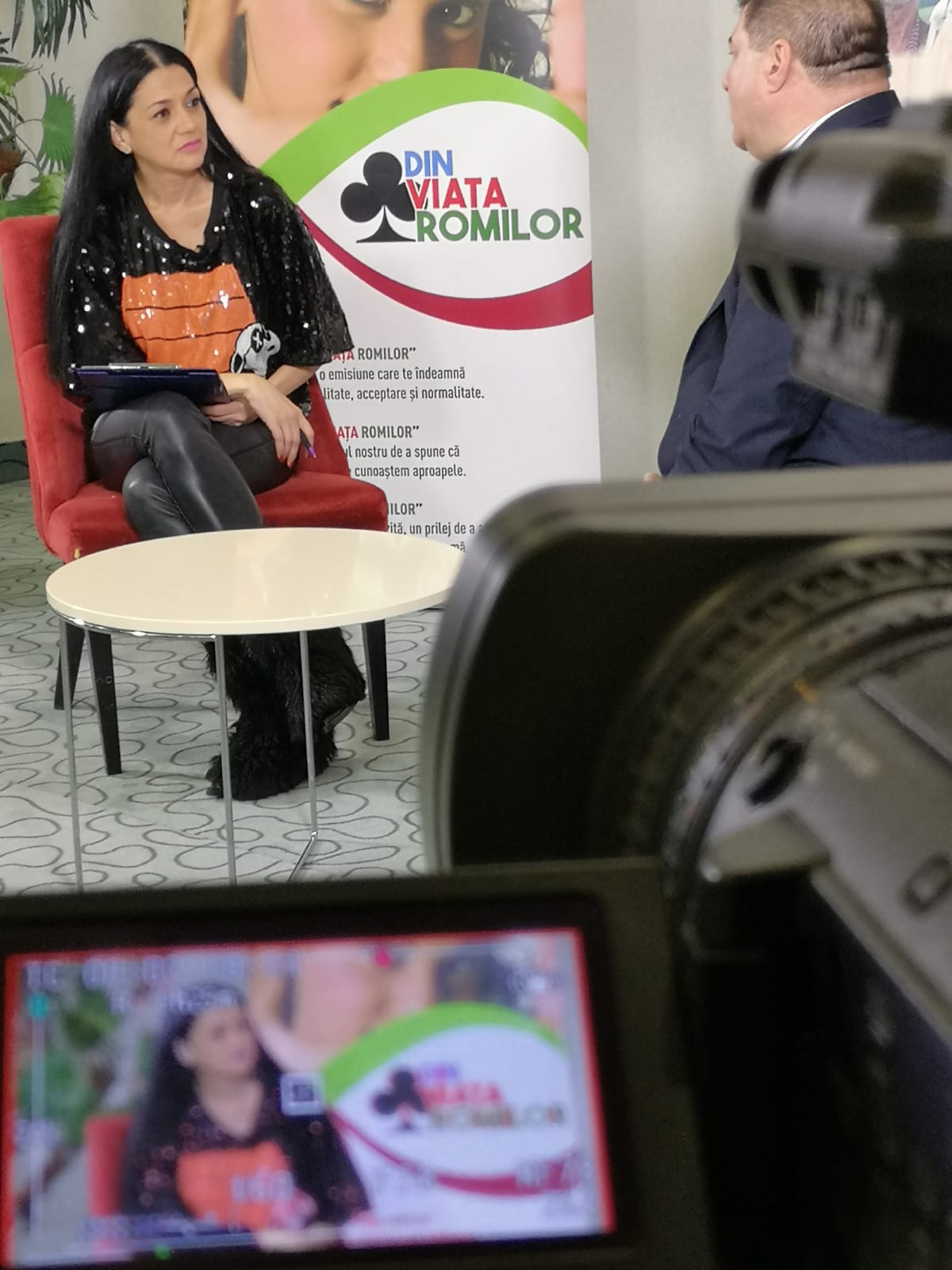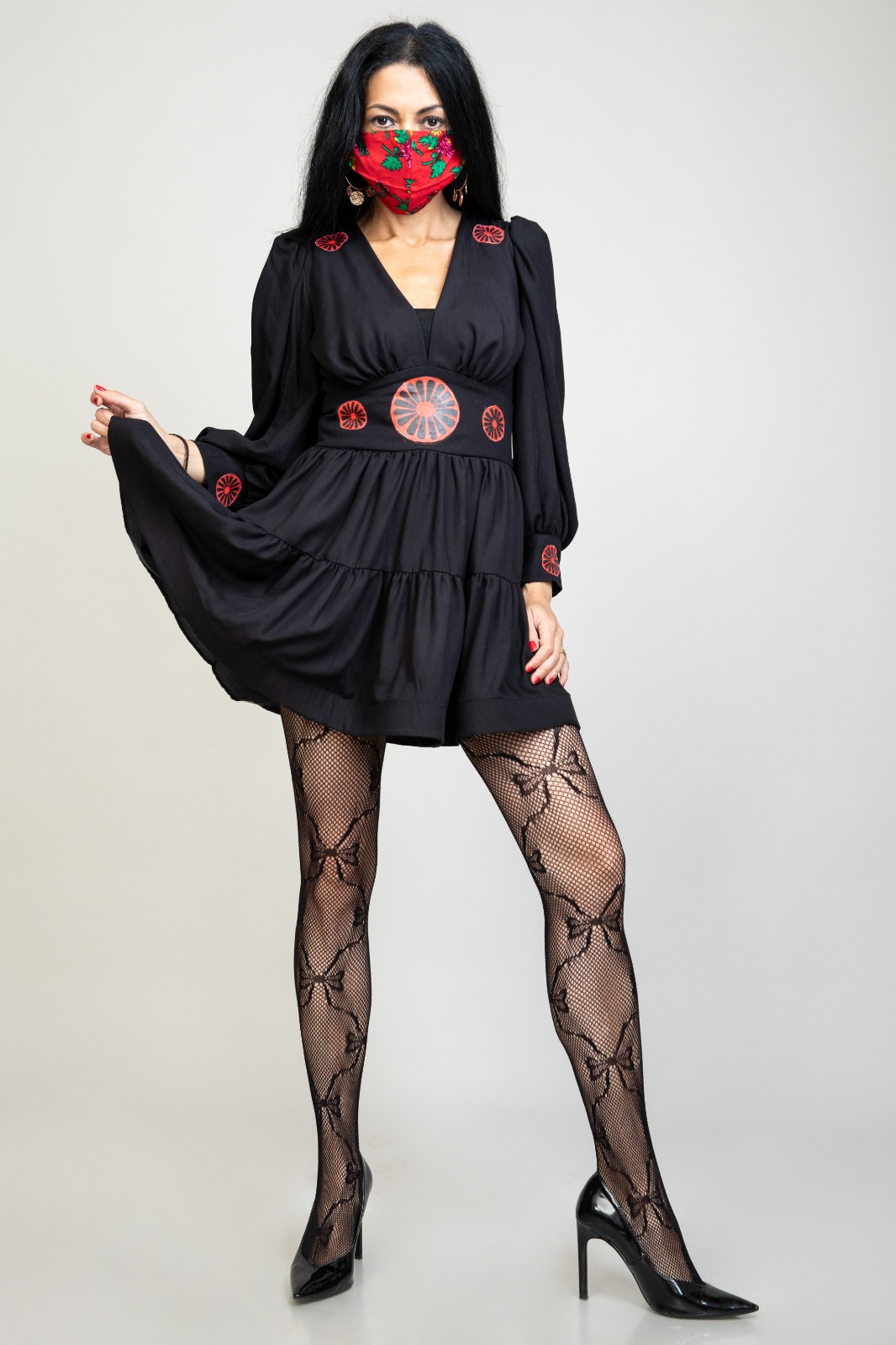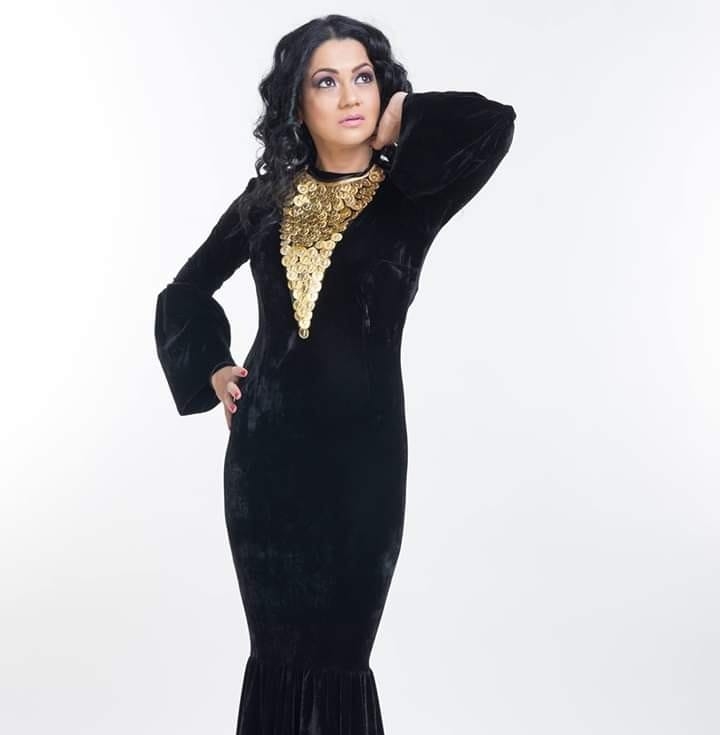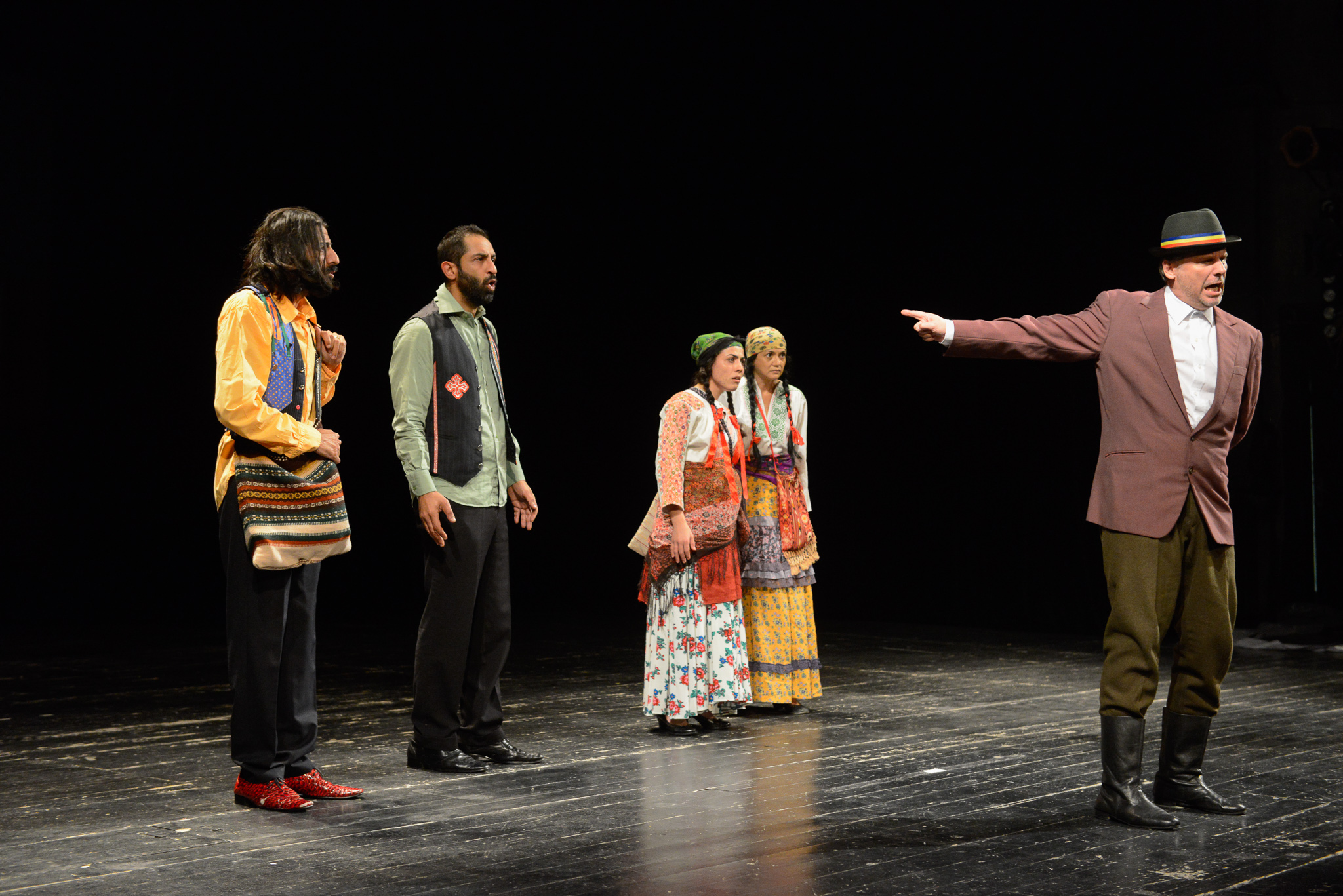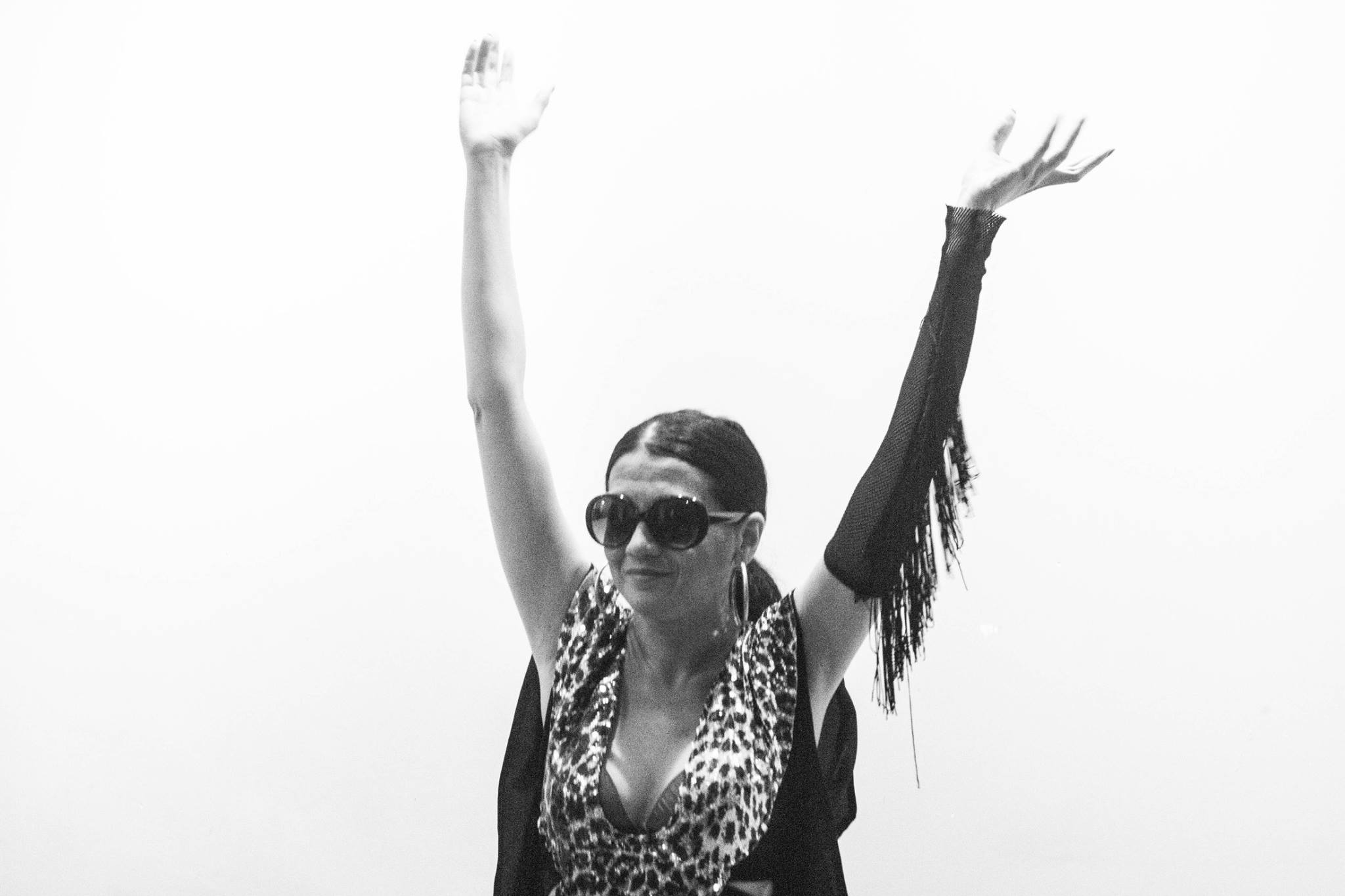
Today, April 16, on the Roma Actor's Day, we invite you to read the interview of Zita Moldovan, co-founder of the Giuvlipen Theater Company ( Giuvlipen ) in the new issue of [H] MAGAZINE, special edition "Women".
Zita Moldovan is a journalist with a career of over 15 years in national television.
Zita is a fashion designer with her own line called Loly, inspired by the culture and traditional dress of the Roma, with a modern and contemporary reinterpretation.
Check this out: Loly by Zita Moldovan
Together with Mihaela Drăgan, she founded Giuvlipen, the first independent Roma feminist theater company in Romania, and tells us about activism through culture and the importance of stories and self-representation in theater.
The magazine can be read:
- mobile friendly, pleasant and a touch away here: https://pubhtml5.com/lzji/bkhh
- in pdf version (can also be downloaded); just click on the preferred links Google Drive https://bit.ly/3m8sYxw | Dropbox https://bit.ly/3waUIGc
- flour on ISSUU https://issuu.com/.../_h__magazine_-_femeia__editie...
Enjoy & don't forget that sharing is caring because... these voices matter!
________
This project was finely woven together with Identity.Education
#hlgbtqunitedbrasov #hlgbtqunited #hlgbtbrasov #lgbtbrasov #hmagazine
|
|
|
|
|
Zita Moldovan: "For 30 years there has been no political party that has a serious program for the Roma communities"
Zita is a Roma actress and feminist. In 2014, together with the actress Mihaela Drăgan, they founded the independent theater troupe Giuvlipen - "feminism" in Romanian.
Interview by Adriana Moscu
Giuvlipen is the first independent Roma feminist theater company in Romania. Their performances openly present subjects that history, mentality and social or political constraints have silenced. I talked with Zita about the status of Roma women in a society where equal opportunities do not imply an equal start in life and which fuels prejudices against a culture that is as old and rich as it is discriminated against and little understood.
Zita, you were born in 1979. That means we are the same age. I remember my childhood in the crazy '90s. Growing up as a girl in Romania in those years seemed quite dangerous to me. How was it for you?
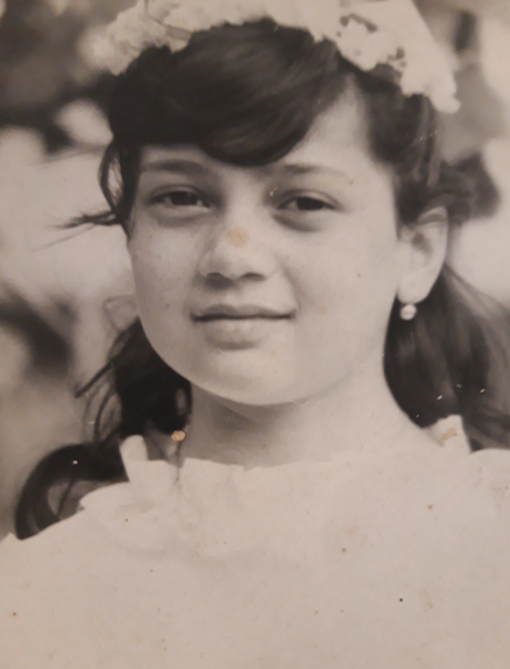
My childhood was very beautiful in every way. I think we weren't aware of the danger because we didn't really go anywhere unaccompanied. Until middle school, I went to school with my grandmother ( Laughs. ) Then, I went with my mother or father. I was alone with my parents and I was quite chubby.
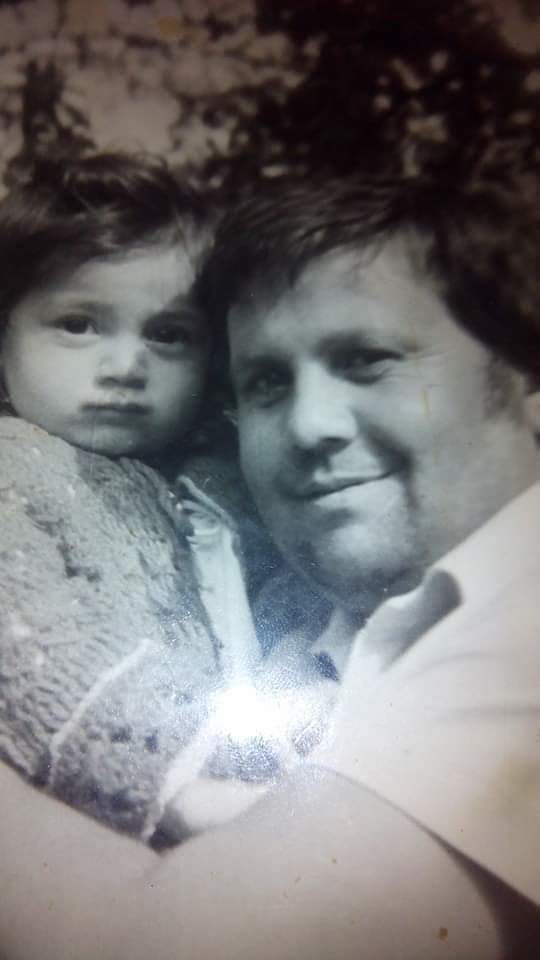
My father is a mathematics teacher and the discipline was the letter of the law in the house. But he was also my best friend. He really wanted me to do sports and enrolled me in all the sports that were available in a small town like Reghinul - gymnastics, athletics. So every day I was accompanied by one of the parents.
I didn't really have any friends, I was busy with school all day, then, in the afternoon, with the homework I did with my father and in the evening - sports. I was playing more with my cousins at the weekend. I really liked to sing and dance when I had free time. I was putting on a show for them, and mom and dad were the spectators. The neighbors were desperate 🙂 From then on I knew I wanted to be an actress, but my father told me to focus on a serious job.
Has anything changed in the collective mentality regarding discrimination in 30 years of freedom? How do you perceive?
Some changes I think have happened and I want to think there will continue to be, because we still have a lot of self-education to do about discrimination. I also learned a lot in these 30 years, because there were many things I did not know about my race. I learned very late about the painful history of the Roma, about slavery and the holocaust, and I wish I had known these things since school. Even now there is no school textbook that talks about it.
From your point of view and personal experience, what is the truth? The Roma do not want to integrate or are the authorities unable to do so?
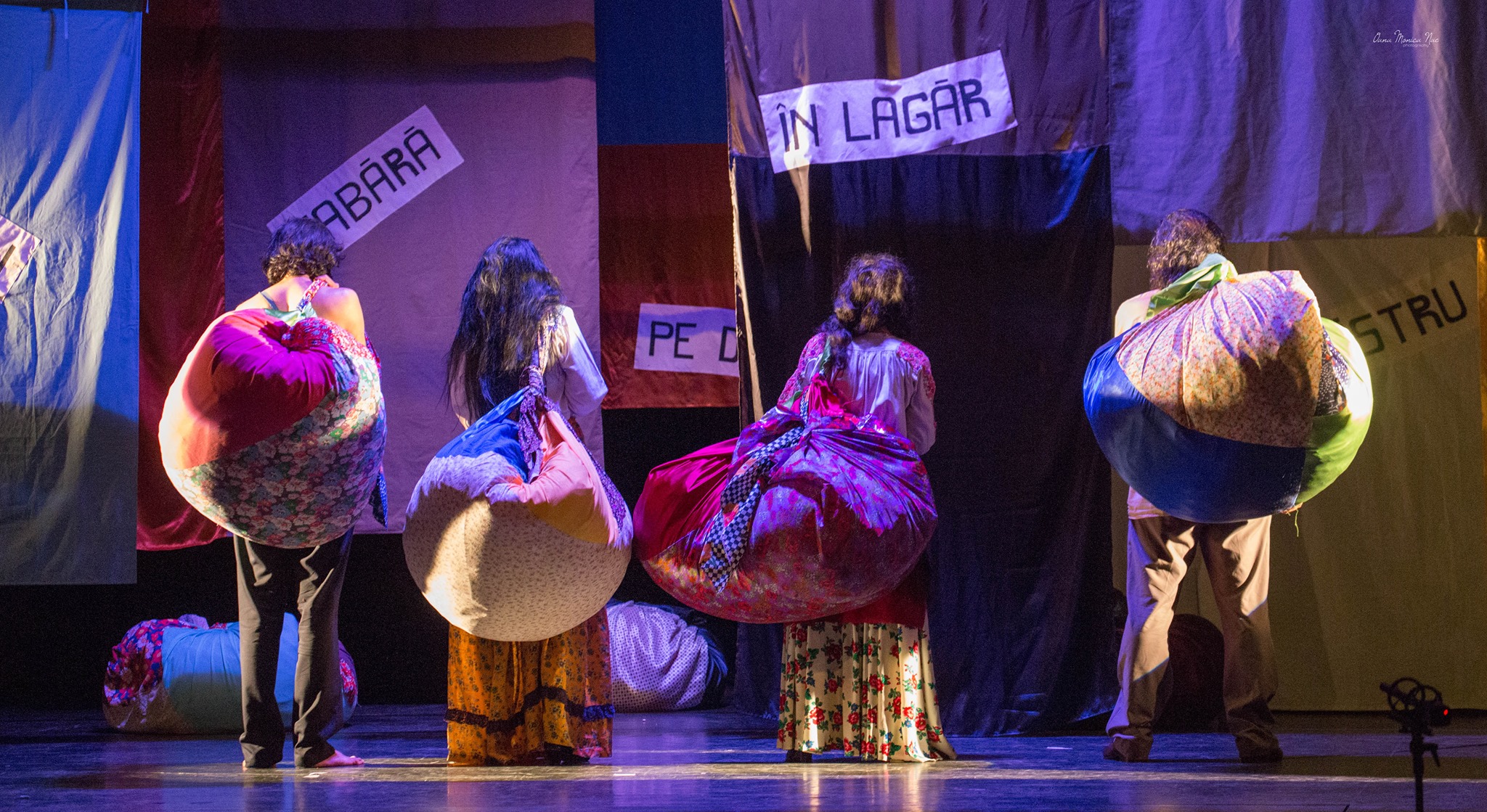
This with the Roma who don't want to integrate is a big absurdity and a big untruth. The political class in Romania, since the 90s, had no serious program to improve the life of the Romanian Roma. I personally don't like this with integration. Rather we should ask: where to integrate? In a society where discrimination is at alarming levels? Or in a society where politicians make fun of everything they are supposed to improve: health, education, etc.?
As I said, for 30 years there has been no political party that has a serious and viable program for Roma communities. There has been a strategy to improve the lives of Roma since 2001, but it has not been budgeted. It exists only on paper and that's it.
All political parties used and continue to use Roma communities, once every four years, when they are asked to vote.
I remember, back in the 80s, the summer when my family went to the beach for two weeks on vacation and forgot to lock the apartment door. Day after day, the next-door neighbor of Roma ethnicity guarded their front door. On their return, they found everything as they had left it. In large part, and thanks to her. Gentiles from both "camps" lived quietly and peacefully on the street, while I played day and night with the little girls of the Roma neighbors. There were never any conflicts between us. Today, my youngest daughter, aged 13, also has a Roma friend – one of her best friends, by the way.
Why do these prejudices against Roma citizens continue? Who has an interest in maintaining them? How do you explain?
Your experience is very cool, but more important is how we talk about these experiences and what we learn from them. That if we only had a good friend of Roma ethnicity as a child, but we still say and think that gypsies do, gypsies steal, gypsies are unwashed, it means that our experience is canceled by that mentality. Unfortunately, we all lived and live in a broken society. We don't have anti-racist education, nobody teaches you at school that the Roma were slaves for 500 years on the territory of Romania. We are used to sayings like "If you're not good, I'll give you to the gypsies". We grew up and were formed with all these prejudices.
I think each of us should educate ourselves more about this and understand that racist behavior does no one any good. Look, for example, what happened now, recently, at the football match in which Colțescu refereed. I was terribly annoyed by all the discussions debating whether or not what Colțescu did was racism. It clearly was. But we are so used to such behavior, that the vast majority saw Colțescu as a victim. We must understand that only through anti-racist education can we overcome and improve these behaviors.
Concretely, what should change for equal opportunities in Romania? And especially how?
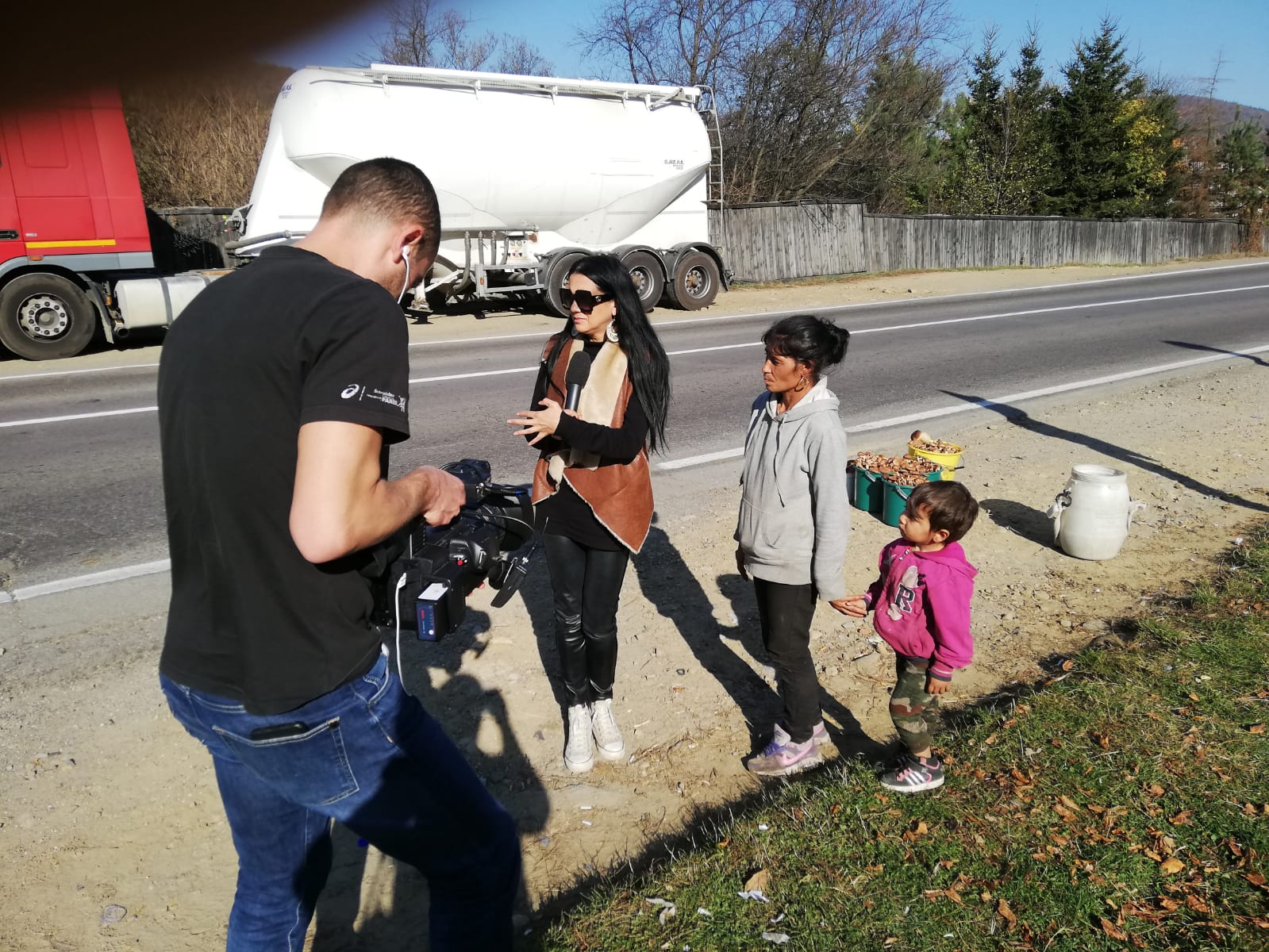
When we talk about equal opportunities, we should also talk about the same start. Unfortunately, we are not starting from the same positions. And then I think that ways should be found to balance, somehow, the course of our journey, until we talk about the same chances. The Roma did not have the same start as the majority and hence the gaps that some consider bad will.
I think we have a lot of work to do on remedial measures. The same can be said when we talk about women. They have not had the same rights throughout history as men, indeed, their rights have been violated. Even now the situation is not rosy, violence against women is increasing, women are discriminated in the workplace, women are not represented as they should be in politics, etc.
Does your name, Zita, have a meaning?
My name comes from the Hungarian language. But my mother told me that, before I was born, she had seen an Indian film and the actress's name was Zita.
Tell me about your family. How do you get along with them? Do they support you in your work? Are you part of a conservative or liberal family?
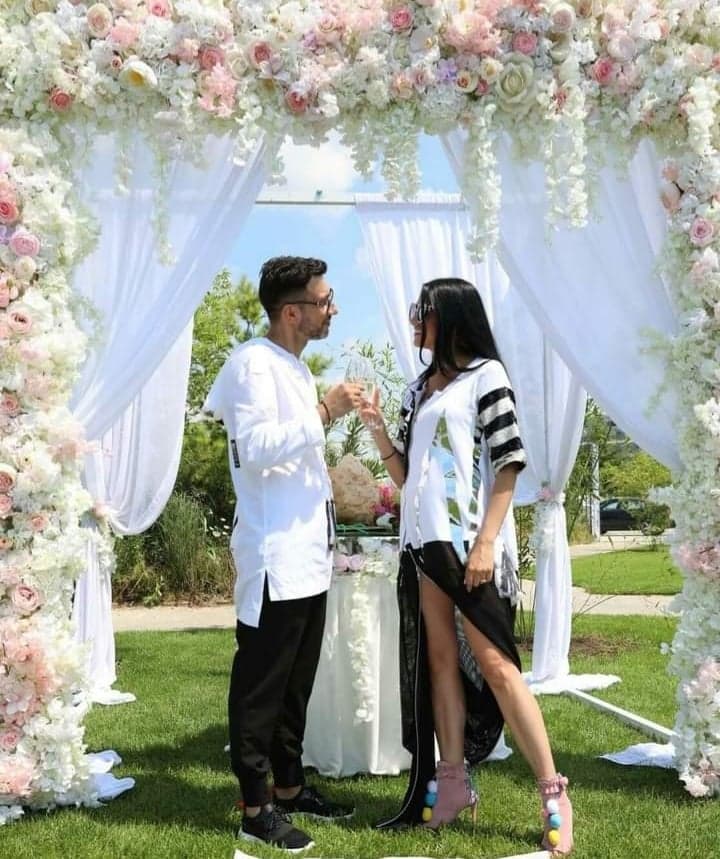
I come from a Hungarian Roma family. Hungarian was and still is spoken in my family. My parents studied in Hungarian. Reghinul is part of Mureș county and all the people there speak Hungarian.
My parents supported me a lot in all my work, although my father was not exactly happy that I chose acting. He didn't think I would get in the first time and he didn't want me to lose a year and stay at home.
My family also means my husband. We got married in 2018 after a 10 year relationship. For us, that paper was not important, but in the end, at my mother-in-law's insistence, we had an atypical wedding, a garden party to which we invited only close friends and we had a lot of fun. My husband supports me in all my activities, although sometimes we have different opinions.
How did you choose to study acting and become an actress?
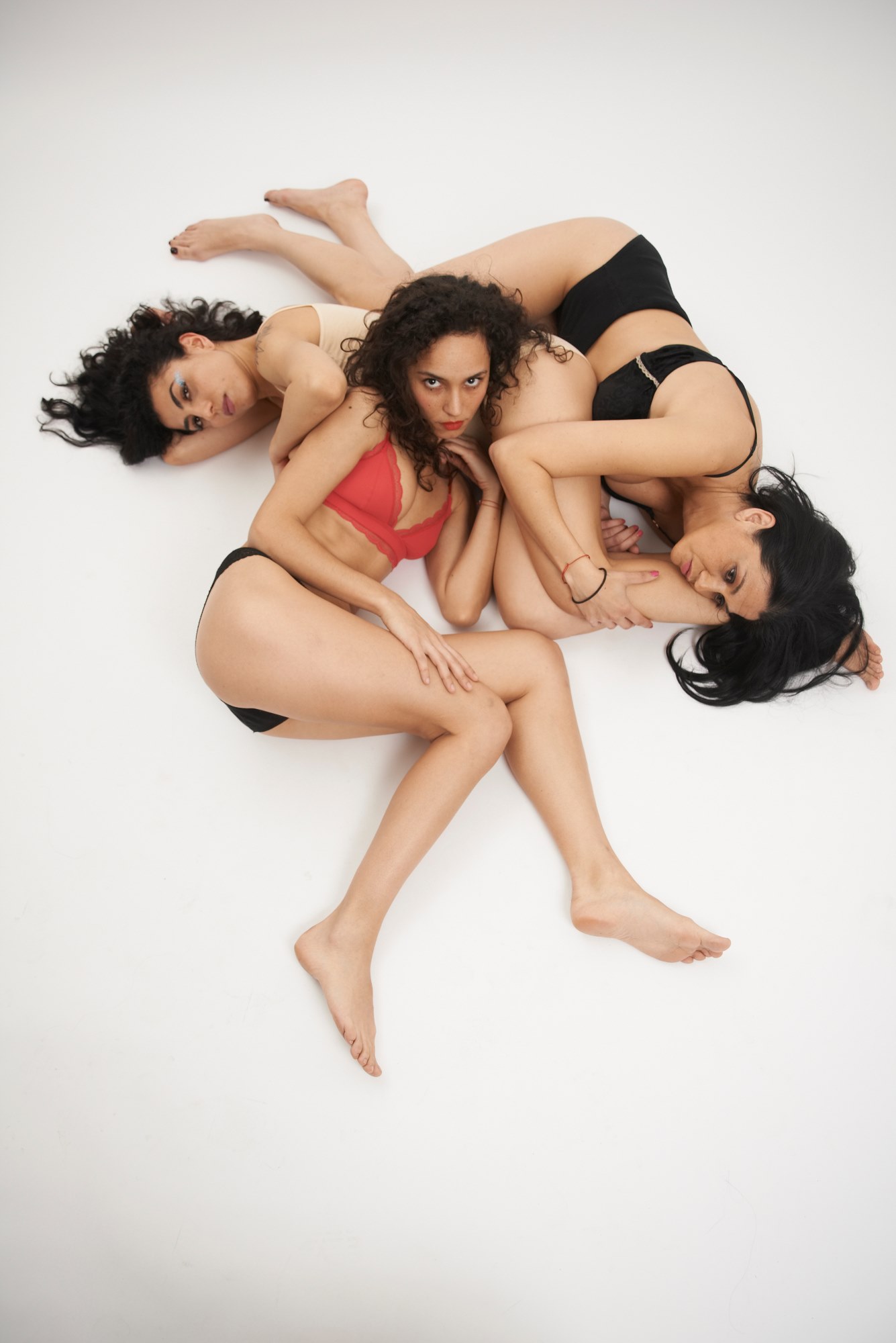
I chose acting since I was little. Mom and Dad were kind of skeptical, we had a lot of discussions about it. After I finished high school, I made a deal with my dad. He told me that if I take the sociology exam first and get in, the following year he will support me to try acting as well. I did as he said and went to Cluj, at the Babeș-Bolyai University, at Sociology, the social assistance department. I entered with a scholarship.
Then, the following year, I took the acting exam, also in Cluj, but without them knowing. After I got in, I let them know I was dropping out of college and they agreed.
How did Giuvlipen come about, how does it differ from other theaters, what shows have you staged so far?
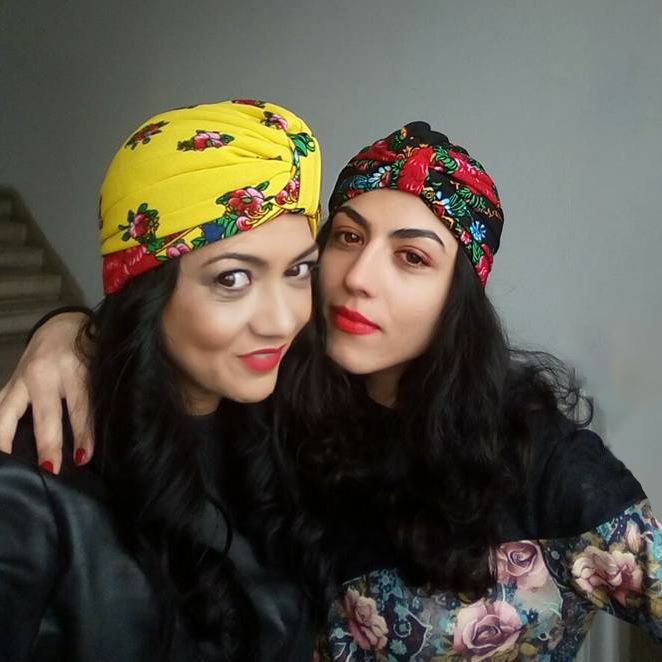
Giuvlipen came into existence in 2015. In fact, in 2014 was the magical meeting I had with the actress Mihaela Drăgan. That's when our first discussions about establishing a Roma feminist theater began. We realized from the beginning, both me and Mihaela, that there is no theatrical platform for Roma actors where they can express themselves, be represented and self-represented. Since its establishment, we have produced two shows a year, which is a lot for an independent theater without a constant budget. Giuvlipen shows talk about topics that are uncomfortable for some.
Giuvlipen means feminism in the Romanian language and is the first independent Roma feminist theater company in Romania.
The themes of our shows are diverse, but they have something in common: we openly discuss topics that sometimes history, sometimes mentality and social or political constraints have silenced.
What roles have you played so far? Which is your favorite? But the most difficult?
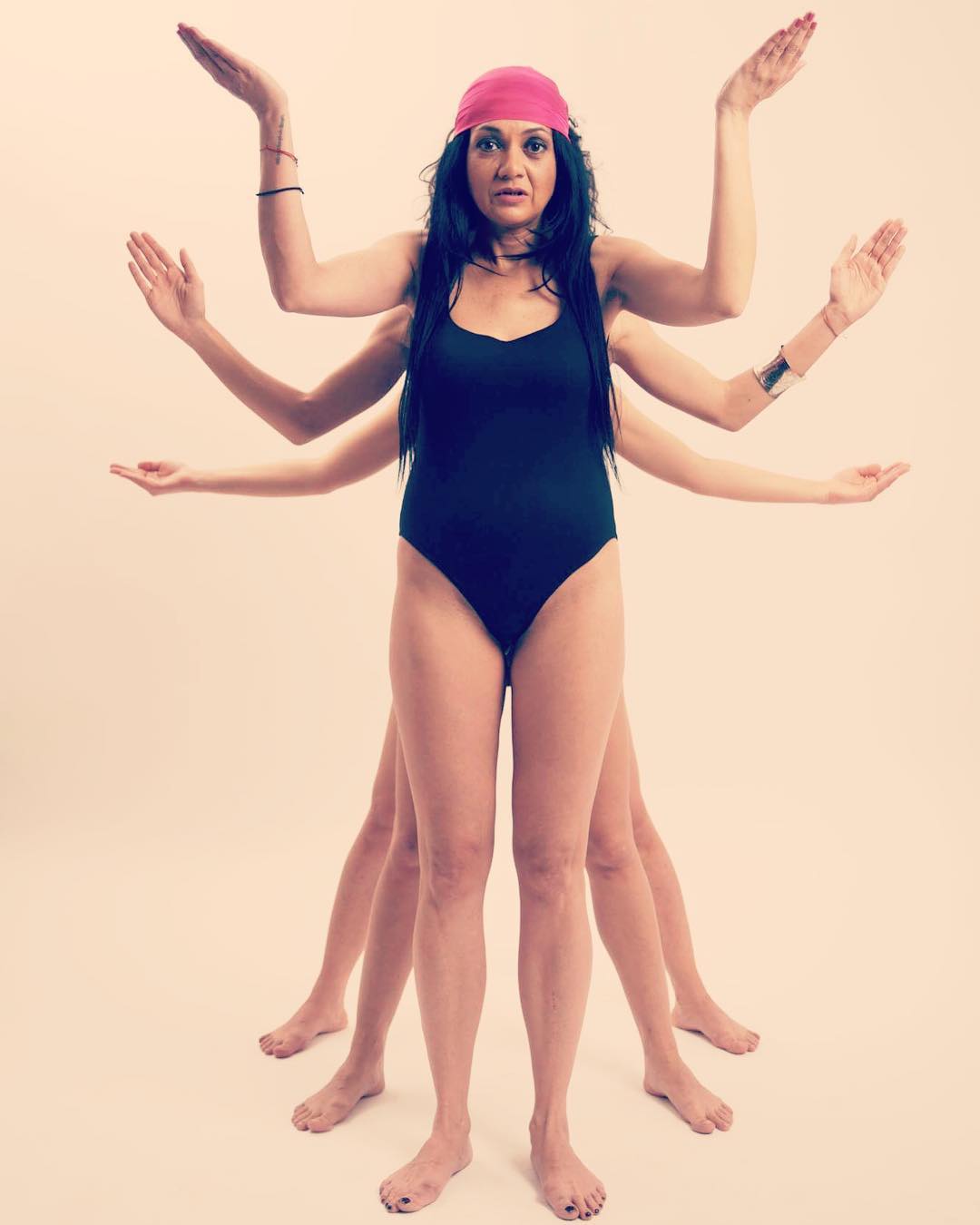
All the roles I played are equally dear to me. All our shows are difficult, because they talk about us, about our identity, and then the energy consumption is higher.
What activities does Giuvlipen have during the pandemic?
We tried to adapt to this pandemic, which I hope will pass as soon as possible, so that we can resume our activities.
Until then, however, together with Mihaela Drăgan, we launched an online show on the Giuvlipen Facebook page: I am the main actress . Thursday, December 17, was the launch, and the first episode had as its theme " Representation of Roma in mass media, theater and film" .
How has this situation affected you from the beginning until now? What could the authorities do better?
As an independent theater, this pandemic affected us a lot, because we couldn't play anymore. As an independent actor you are not employed and you do not have a constant income - this means that from a financial point of view, both I and my colleagues suffered.
You are the host of a show on National TV. Tell us more about her and what's going on now.
Yes, I have a show on National TV, it's called From the life of the Roma . I presented it since 2005, but lately my colleagues have been filming more. It is the only show for Roma on a private television station. I think there should be more shows like this, to counteract the stereotypical representations about Roma presented in most shows in Romania.
You have also created a clothing collection with traditional influences. How did you come up with the idea, what can you tell us about it? How important is traditional port in Roma communities?
Fashion design is another passion. With this pandemic, I had time to deal with the new Loly collection (in Romanian it means "red color").
The idea came to me since 2016, when I launched the first Romany Dreams collection. There is a need for representation in this field as well, because here too, Roma symbols, from a clothing point of view, are interpreted by the big fashion houses and not only in a sensationalist way, without them knowing or even being interested in their culture Our.
My collections present a new and reinterpreted version of traditional clothing through Roma symbols. Red color symbolizes power, life, resistance. All these elements define the Roma, their history and culture.
A Roma woman you admire?
I admire several Roma women. I couldn't name just one. I admire my colleagues from Giuvlipen, I admire the Roma activists who fight every day, I admire the Roma girls who go and work in the Roma communities.
The word "Gypsy" has a pejorative connotation and, moreover, no dialect of the Roma culture contains it. However, some members of the community accept it. How did these differences of opinion arise?
Those who do not mind this appellation means that they do not know the meaning of this word. With a simple Google search, they could find out why it's not OK to use it, but as I said before, ignorance and not wanting to educate ourselves about it creates ignorance and that's how discrimination and racism is formed. And the fact that some of our Roma use this phrase is because they don't know the meaning of this word either. We were all brought up in a society where the use of this word was accepted and legitimized and still is.
Do you have a favorite traditional custom?
I don't know if I have a favorite traditional habit, but I like shahaimas (cabbage with meat, traditional Roma food).
What are the projects you want for 2021?
For 2021, I wish us all to be healthy. Then, the most important project for Giuvlipen is the establishment of the state Roma theater. It is necessary to have this institution of Roma culture, which will speak about us, about our culture and history. It is important that the voices of Roma actresses and actors are heard and represented. We are the largest minority in Romania (two million unofficially and 600,000 officially, according to the census).
All minorities have cultural institutions theaters museums. The only minority that does not have these institutions is the Roma. I think the time has come to occupy the cultural spaces - we have the right to representation and self-representation.
Convey a thought for our Romani readers that you would like them to understand and assimilate about the community, and then translate it.
Penjale te aven zorale, but baht hai sastimos! Stop Romania! I wish my Roma sisters a lot of strength, health and luck!


